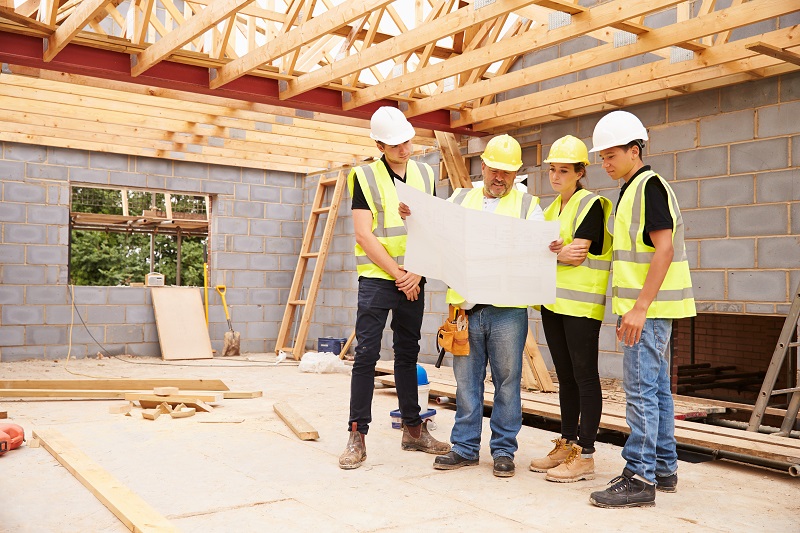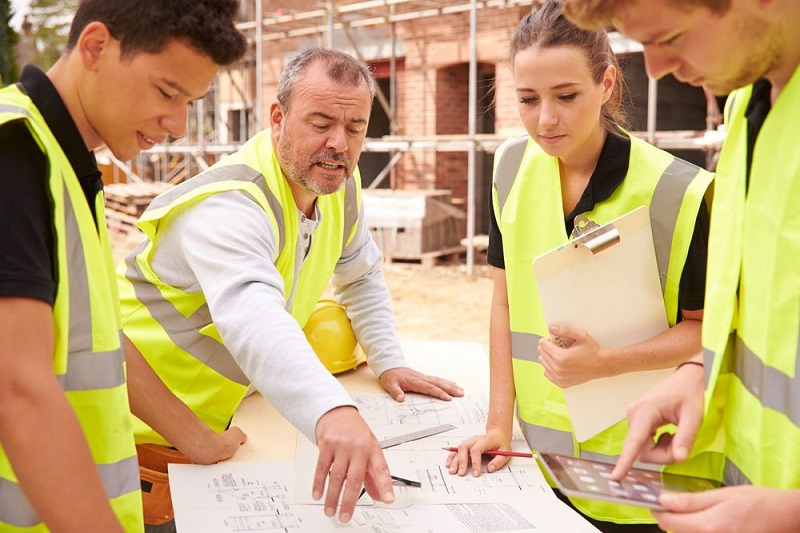You must have heard the phrase: Creation is a lot more difficult than destruction. And it is amazing how this phrase is applicable so accurately to our real life as well. Because be it any commercial infrastructure or any housing model, the journey from the initial plan to the blueprint to the finalised creation process is an extremely difficult task, which requires expert minds with adept construction skills to design the desired construction project within the expected duration, and maintaining the budget range. Such skilled professionals required for the task of infrastructure construction are known as builders. A builder is a developmental work contractor who is specialised in assembling all the parts of the entire project and is able to finalise it as per the requirements of project planners. Once the project has been executed, the builders shall provide assurance by providing the warranty and bearing all the responsibilities, should anything go wrong within that period.
The necessity of a builder
- In simpler words, a builder is the only individual who has the experience and skill set to coordinate all the players and products needed to transform a set of two-dimensional drawings and theoretical designs into a finalised piece of architecture.
- The builder has to make sure that everything happens at its exact accurate timing, and that the finalised result must resemble the look that the clients envisioned. The responsibility of a builder begins even before the initial approach of the constructional process.
- The benefit of choosing a builder early in the design process is that the builder can make sure the home can be built in the best economically cost-effective manner. Bringing on a builder at an early stage can yield a significant amount of cost savings.
A relief from legal complications
- After the execution of the drafted plans, the builder has to work with local authorities and abide by the legal guidelines to secure the proper permits and authorisation rights. Professional builders have a proper understanding of building codes through their years of experience in this field, as well as good working relationships with local authorities.
- This is another major advantage to hire a builder, is that the building department is likely to inspect more closely a permit application submitted by a home-owner, or even by a small building company, than one submitted by an established professional contractor with a reputation for solid management and quality work, as the chances of error in the first case are far greater than that of the second case.
- Professional builders also have close tie-ups with quality subcontractors. And because the builder is a source of ongoing work for those contractors, prices offered to the builder will likely be less than the prices offered to anyone else, as a professional courtesy.
Key responsibilities of builders
Once the project is under-way, the builder’s responsibilities shall arise with the completion process. These skills include:
- Keeping the job pace stable enough to meet the deadline by ensuring that all workers and materials are available at exactly the right time. The time and organisation required for the builders to constantly adjust everyone’s schedules is something home-owners seldom see.
- Overseeing the job to guarantee that all trades deliver quality work. The builder knows enough about each specific trade and has a good enough relationship with each subcontractor, to make sure things get done right.
In a nutshell, appointing a builder for the supervision and facilitation of any construction process is going to be a lot more beneficial than doing it by ourselves. Hence, builders are an indispensable asset to any constructional as well as a developmental project.













